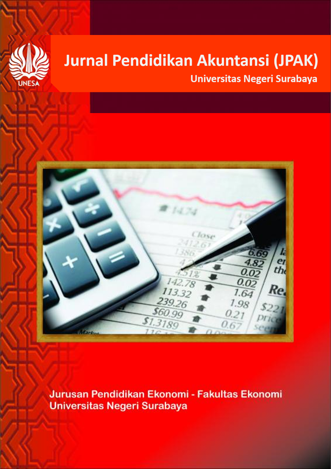Pengaruh Gaya Belajar, Minat, Dan Motivasi Sebagai Variabel Moderating Terhadap Hasil Belajar Mata Pelajaran Akuntansi Syariah
DOI:
https://doi.org/10.26740/jpak.v9n1.p123-130Keywords:
Learning style, interesting to learning, learn motivation, leaming outcomes islamic accountingAbstract
Student learning outcomes at this time are the effect of multiple factors which can be internal and external. The purpose of this study is to analyze the effects of variables (learning style, interest in learning, and motivation to learn) in class XI students of Islamic Banking at SMK Negeri 2 Mojokerto. The type of this research is quantitative. The population in this study were 118 students of class XI Islamic Banking at SMK Negeri 2 Mojokerto and the samples were taken by means of a possible sample using a simple random sampling method. After taking the data, the results obtained explain that the results of the t test variable Learning Style in this study have a result of 5,359 with a significance result of 0,000 or can be said to be below 0.05. The result of the t test for the Learning Interest variable in this study has a result of 3,314 and a significance result of 0,000 or it can be said that it is below 0.05 so that the researcher concludes that H0 is not accepted while Ha is not rejected. The results of the t-test variable Learning Motivation as a moderating variable in this study have a result of 2.114 followed by a significance value of 0.37 or can be said to be below 0.05. Validity testing uses a significance of 5% provided that all variables r count is greater than r table 0.361 which means it can be declared valid. So (1) there is an effect of learning style, (2) there is an effect of interest in learning, (3) there is an effect of learning motivation as a moderating variable, (4) there is an effect of student learning outcomes in class XI Islamic banking SMK Negeri 2 Mojokerto.
Downloads
Downloads
Published
How to Cite
Issue
Section
License
Authors who publish with this journal agree to the following terms:
- Authors retain copyright and grant the journal right of first publication with the work simultaneously licensed under a Creative Commons Attribution License that allows others to share the work with an acknowledgement of the work's authorship and initial publication in this journal.
- Authors are able to enter into separate, additional contractual arrangements for the non-exclusive distribution of the journal's published version of the work (e.g., post it to an institutional repository or publish it in a book), with an acknowledgement of its initial publication in this journal.
- Authors are permitted and encouraged to post their work online (e.g., in institutional repositories or on their website) prior to and during the submission process, as it can lead to productive exchanges, as well as earlier and greater citation of published work (See The Effect of Open Access).

Jurnal Pendidikan Akuntansi (JPAK) is licensed under a Creative Commons Attribution-NonCommercial 4.0 International License.
 Abstract views: 596
,
Abstract views: 596
, PDF Downloads: 442
PDF Downloads: 442



